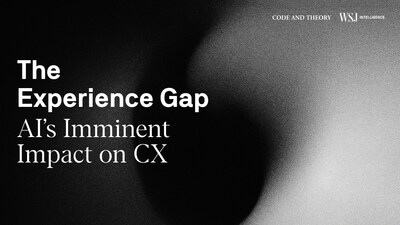93% of Executives Admit Their Customer Experience Is 'Broken'
Rhea-AI Summary
A new research report by WSJ Intelligence and Stagwell's (NASDAQ: STGW) agency Code and Theory reveals a significant disconnect in customer experience (CX) implementation. The study of 800 C-suite executives found that 93% admit their CX is "broken", despite 94% acknowledging CX strategy's direct impact on business success.
Key findings show that companies excelling in digital CX generate 30% more revenue ($1.4 billion on average) than laggards. However, only 28% of executives are leveraging new technologies for innovative customer experiences. The study identified major challenges, with 76% of C-suite respondents behind on AI transformation and 88% believing AI-driven personalization hasn't reached its potential.
Positive
- None.
Negative
- 93% of executives admit their CX is 'broken'
- 76% of C-suite respondents are behind on AI transformation
- 88% believe AI-driven personalization hasn't been realized
- Cultural dysfunction cited by 56% of industry leaders as primary barrier
- Significant internal barriers including leadership misalignment (49%) and organizational silos (43%)
Insights
Stagwell positions itself strategically in AI customer experience consulting as research reveals massive gaps for businesses to address.
This research report from WSJ Intelligence and Stagwell's agency Code and Theory uncovers significant market opportunities in the AI-driven customer experience space. The finding that
The research highlights a critical disconnect: while
From a competitive positioning standpoint, this report establishes Stagwell as a thought leader in the rapidly evolving AI-CX intersection. By identifying that barriers are primarily organizational rather than technological (
The research timing is strategic, as
New WSJ Intelligence and Code and Theory research report shows that businesses are failing to harness AI's potential to fundamentally reshape customer relationships.
The report, titled "The Experience Gap: AI's Imminent Impact on CX," found that only
Companies mastering digital CX are redefining entire industries. They generate
The study found that success demands rethinking customer relationships from the ground up. AI offers the path to emotionally intelligent customer connections that drive lasting competitive advantage.
Among the most notable takeaways:
76% of C-suite respondents say they're behind on AI transformation88% believe the promise of AI-driven personalization hasn't been realized44% report having an advanced understanding of AI's emotional potential86% expect CX to become a top-tier investment priority
The primary barriers to CX transformation are cultural and organizational rather than technological. While
When executives identify transformation obstacles, they point to internal failures rather than external constraints: leadership misalignment (
Don McGuire, Senior Vice President and Chief Marketing Officer, Qualcomm Incorporated, says: "When you're integrating AI tools into your workflows, you have to take a human-centric approach and plan for that as the outcome. Think about your customer interactions. Can they be improved? Can an interaction with an AI be better than one with a human? That's not easy and it takes a lot of planning. The companies taking leadership roles will be the ones that vault ahead."
Dan
The survey demographics comprised 800 U.S.-based senior executives at companies with at least
Learn why the winners are winning, how you can leverage AI to deepen emotional connections with customers and what the roadmap for success looks like.
Download "The Experience Gap: AI's Imminent Impact on CX" report here.
About Code and Theory
The Code and Theory Network is the only technology and creative network with a balance of
About WSJ Intelligence
WSJ Intelligence conducts best-in-class bespoke thought leadership for commercial clients of The Wall Street Journal, Barron's, MarketWatch, Mansion Global & Investor's Business Daily. Using various qualitative and quantitative methodologies and rigorous analysis, WSJ Intelligence collaborates with clients to create compelling and clear executive-level narratives and uses our world-class brands as distribution channels. WSJ Intelligence is a unit of The Wall Street Journal advertising department. The Wall Street Journal news organization was not involved in the creation of this content.
Media Contact
Kenneth Hein
kenneth.hein@codeandtheory.com
![]() View original content to download multimedia:https://www.prnewswire.com/news-releases/93-of-executives-admit-their-customer-experience-is-broken-302573023.html
View original content to download multimedia:https://www.prnewswire.com/news-releases/93-of-executives-admit-their-customer-experience-is-broken-302573023.html
SOURCE Stagwell Inc.










